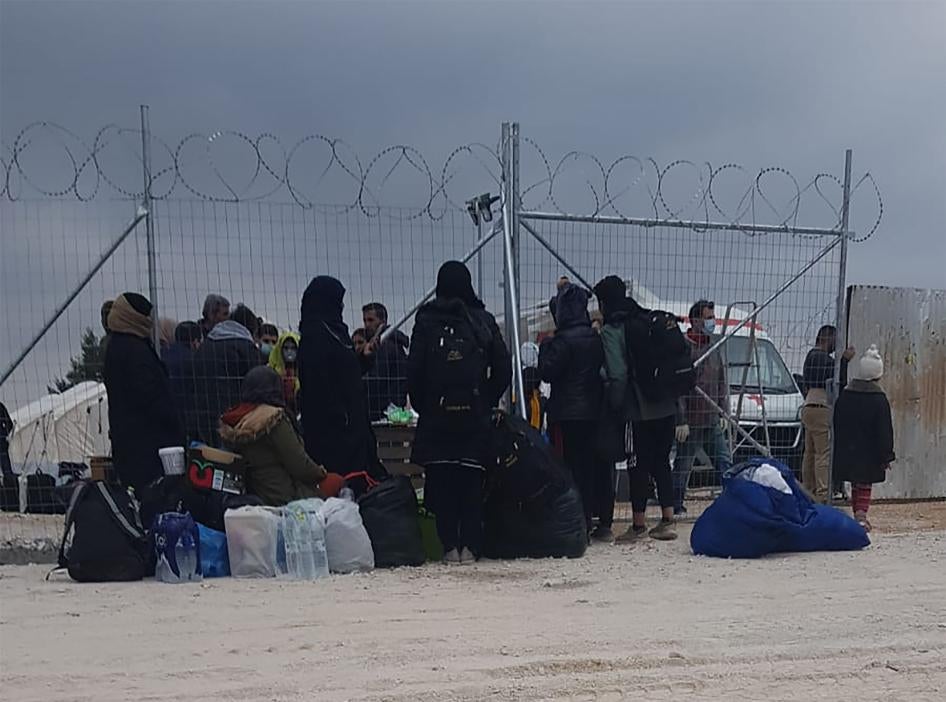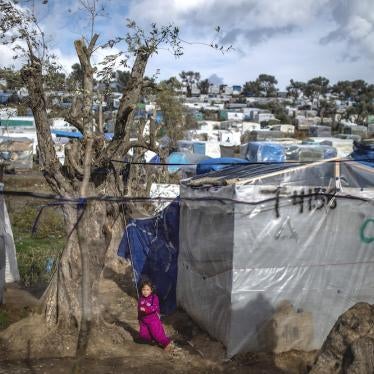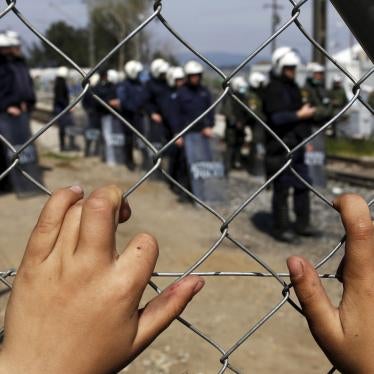By Diana Naoum
Greece’s month-long suspension of its asylum system, closed in reaction to Turkey encouraging migrants and asylum seekers to cross into Greece, ended on April 1. The asylum system however was closed again through May 18, citing Covid-19, but is now operating.
Human Rights Watch, along with other civil society groups, called on Greece to respect the right to asylum, and reverse its March decision to suspend access to asylum. Human Rights Watch also called on the European Commission to urge the Greek government to reinstate its asylum procedures, to bring it back in line with EU and international law.
Greece suspended its asylum procedure in March after Turkey opened its western border in late February, allowing asylum seekers and migrants living there to reach the European Union. Greece also ordered the immediate deportation of these people, where possible, to Turkey or their countries of origin.
When hundreds of people tried to enter irregularly from Turkey, the Greek police, army, and special forces used tear gas and rubber bullets to drive them back. In at least one instance, which was video-recorded, they fired at a rubber dingy approaching by sea. Greece also sought greater support from the European Border and Coast Guard Agency (FRONTEX).
In addition to its reporting and advocacy on the suspension of the Greek asylum system, Human Rights Watch also reported critically on Greece’s treatment of more than 2,000 newly arrived migrants and asylum seekers who were initially held in wholly unsanitary conditions on the islands and then transported to two new migrant facilities on the mainland, in Malakassa and Serres, where they have remained in unsanitary and cramped conditions, without evidence that any of them have contracted the coronavirus, well beyond the World Health Organization’s recommended 14-day isolation period.
CNN journalist Christiane Amanpour cited Human Rights Watch’s March 31 report on the treatment of migrants in Greece during her April 1 interview with Greek Prime Minister Kyriakos Mitsotakis. During the interview, Amanpour quoted from the report, which detailed the Greek authorities’ arbitrarily detention of nearly 2,000 migrants and asylum seekers in unsanitary and cramped conditions. Mitsotakis responded on air by emphasizing that the 30-day suspension of asylum applications was a temporary measure and that he “expect[s] a full return to normality” with a streamlined asylum application process. He acknowledged that “conditions are far from being ideal” in the camps. He also said that Greece has too little support from its fellow EU members.
Human Rights Watch also reported on incidents of disproportionate or excessive force by Greek law enforcement officials and vigilante groups against asylum seekers in the border area, including assault, sexual assault, and robbery. Additionally, we have reported on more than 1,800 unaccompanied child migrants on the Greek islands who have been denied their right to shelter, water, food, medical, and psychosocial care, and education and initiated a #FreetheKids campaign calling for the release of more than 250 unaccompanied children being held in police facilities on the mainland.
Human Rights Watch will continue working to ensure the Greek government offers people protection and asylum, pressuring Greece to treat migrants humanely and eliminate the obstacles to accessing asylum. We will also continue urging that EU countries implement measures for greater responsibility-sharing for migrants.









